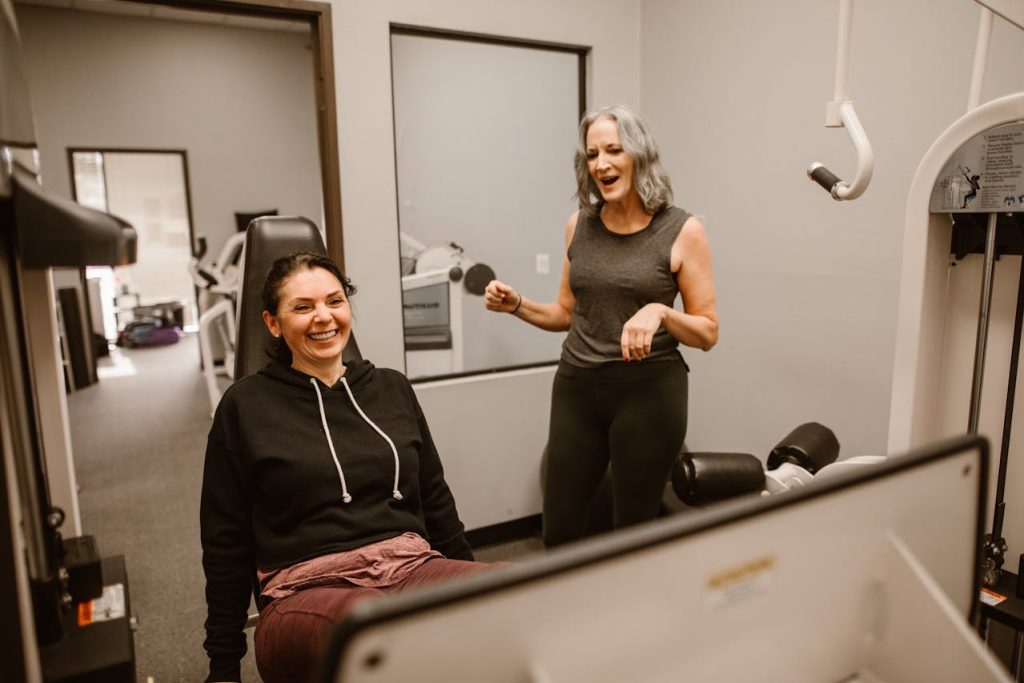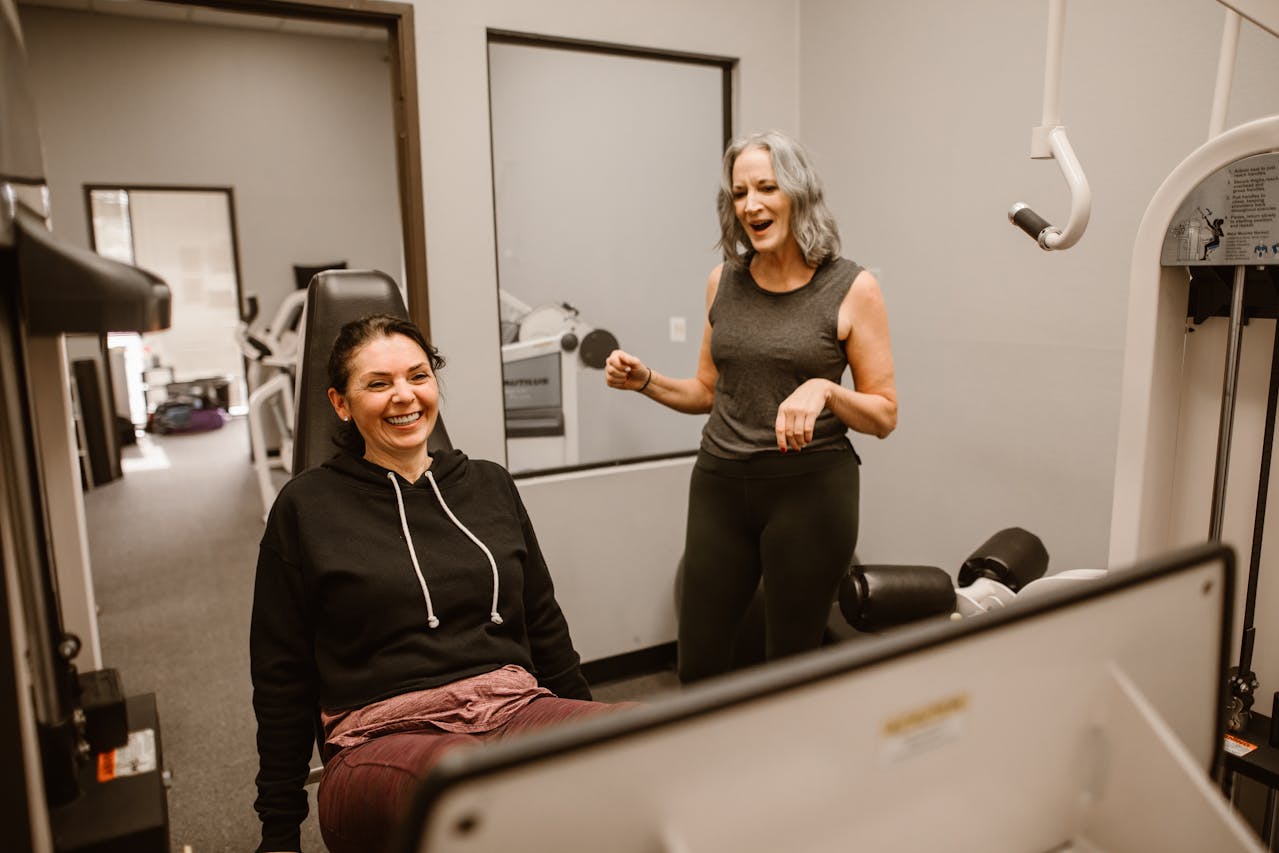Six Considerations for a Protected Menopause Journey
Hey there, ladies! Today, I’m excited to share some insights about navigating the menopause journey with grace and resilience. As a certified fitness professional who works exclusively with midlife women, I’ve observed several key areas that, when protected, can significantly improve your menopause experience. Let’s dive into these six considerations for a protected menopause journey!

1. Protect Your Peace
Menopause can be a stressful time, with your body’s stress response already heightened due to hormonal changes. It’s crucial to find ways to reduce distress. Whether it’s practicing mindfulness, setting boundaries, or simply taking time for yourself, protecting your peace is paramount. According to Dr. Jen Gunter, chronic stress can exacerbate menopausal symptoms by increasing cortisol levels, which negatively impacts overall health. Dr. Gunter emphasizes managing stress through activities like mindfulness meditation, yoga, and ensuring adequate rest to mitigate these effects.[1][2]
2. Protect Your Sleep
Sleep disturbances are common during menopause, thanks to hot flashes, anxiety, and other factors. Good sleep hygiene, such as a dark, cool room and avoiding screens before bed, can help. Dr. Vonda Wright suggests incorporating practices like cognitive behavioral therapy for insomnia (CBT-I), which has shown effectiveness in improving sleep quality among menopausal women. Additionally, supplements such as melatonin and magnesium can be beneficial for regulating sleep patterns.[3][4] A good night’s sleep can make all the difference in how you handle menopause.
3. Protect Your Identity
It’s easy to feel like you’re losing yourself during menopause. But remember, you’re evolving, not disappearing. Find activities and connections that remind you of who you are beyond the roles of mom, wife, or caregiver. Embrace this transition as a time of growth and self-discovery. The Feisty Menopause Network highlights the importance of staying engaged in hobbies and social activities that bring joy and a sense of purpose, helping maintain a strong sense of identity during this life phase.[5][6] Dr. Jen Gunter also stresses the importance of understanding menopause as a natural transition, much like puberty, and not something that diminishes your worth or identity.[7]
4. Protect Your Heart
Withdrawing estrogen increases the risk of cardiovascular issues. Maintain a heart-healthy lifestyle with a balanced diet, regular exercise, and stress management techniques. Dr. Lisa Mosconi recommends a Mediterranean diet rich in fruits, vegetables, whole grains, and healthy fats to support cardiovascular health. Regular physical activity, particularly aerobic exercises, and resistance training are also crucial for maintaining heart health during menopause.[8][9] Keeping your heart healthy is essential for overall well-being during menopause.

5. Protect Your Muscle
Muscle loss is a serious concern during menopause, but strength training can help maintain and even build muscle. Dr. Stacy Sims advises incorporating heavy resistance training and high-intensity interval training (HIIT) to combat muscle loss and boost metabolism. These types of exercises stimulate muscle growth and improve fat-burning capacity, which is particularly important during the menopause transition. Additionally, ensuring sufficient protein intake is critical for muscle maintenance.[10][11] Your muscle is your independence, your ability to travel, play with grandkids, and enjoy a high quality of life.
6. Protect Your Bones
Bone density decreases with age, and menopause can accelerate this process. Incorporate weight-bearing exercises and a diet rich in calcium and vitamin D to protect your bones. Dr. Carla DiGirolamo suggests including activities like plyometrics, which involve jumping and landing, to stimulate bone growth and improve density. Additionally, resistance training helps maintain bone strength and reduces the risk of osteoporosis.[12][13] Dr. Jen Gunter also emphasizes the importance of maintaining bone health through diet and exercise, and debunks many myths about menopause that can lead to poor bone health decisions.[14][15] Your bones are your foundation—keep them strong to maintain your elegance and posture.
Navigating menopause can be challenging, but with these six protections, you can turn the journey into an empowering experience. Remember, every woman’s experience is unique, and it’s about finding what works best for you. Stay informed, stay strong, and embrace this transition with confidence. Until next time, keep it simple and take care of yourselves!
Ren Jones is your guide through the health maze, specialized in nutrition, fitness and menopause, dedicated to improving the lives of midlife women since 2014. You can catch more insights on his podcast, “This Podcast Has No Name,” (Apple and Spotify) where he delves deep into these vital health topics.
References and Sources
These sources provide a wealth of information and evidence-based suggestions to support your menopause journey. Feel free to explore these references for more detailed insights and guidance.
1. Dr. Jen Gunter, [The Menopause Manifesto] (https://drjengunter.com/the-menopause-manifesto/)
2. Dr. Jen Gunter, [7 Menopause Truths] (https://www.huffingtonpost.co.uk)
3. Dr. Vonda Wright, [Cognitive Behavioral Therapy for Insomnia] (https://www.cbt-i.co.uk/)
4. Dr. Jen Gunter, [The Menopause Manifesto] (https://www.penguinrandomhouse.ca/books/652048/the-menopause-manifesto-by-dr-jen-gunter/9780735280786)
5. The Feisty Menopause Network, [Website] (https://www.feistymenopause.com)
6. Dr. Jen Gunter, [7 Menopause Truths] (https://www.huffingtonpost.co.uk)
7. Dr. Jen Gunter, [The Menopause Manifesto] (https://www.penguinrandomhouse.ca/books/652048/the-menopause-manifesto-by-dr-jen-gunter/9780735280786)
8. Dr. Lisa Mosconi, [The XX Brain] (https://www.lisamosconi.com/the-xx-brain)
9. Dr. Stacy Sims, [Women Need Strength for Life] (https://www.drstacysims.com/women-need-strength-for-life)
10. Dr. Stacy Sims, [Training During Perimenopause] (https://www.drstacysims.com/training-during-perimenopause)
11. Dr. Jen Gunter, [The Menopause Manifesto] (https://www.penguinrandomhouse.ca/books/652048/the-menopause-manifesto-by-dr-jen-gunter/9780735280786)
12. Dr. Carla DiGirolamo, [Feisty Menopause] (https://www.feistymenopause.com)
13. Dr. Stacy Sims, [Women Need Strength for Life] (https://www.drstacysims.com/women-need-strength-for-life)
14. Dr. Jen Gunter, [The Menopause Manifesto](https://drjengunter.com/the-menopause-manifesto/)
15. Dr. Jen Gunter, [7 Menopause Truths] (https://www.huffingtonpost.co.uk)



